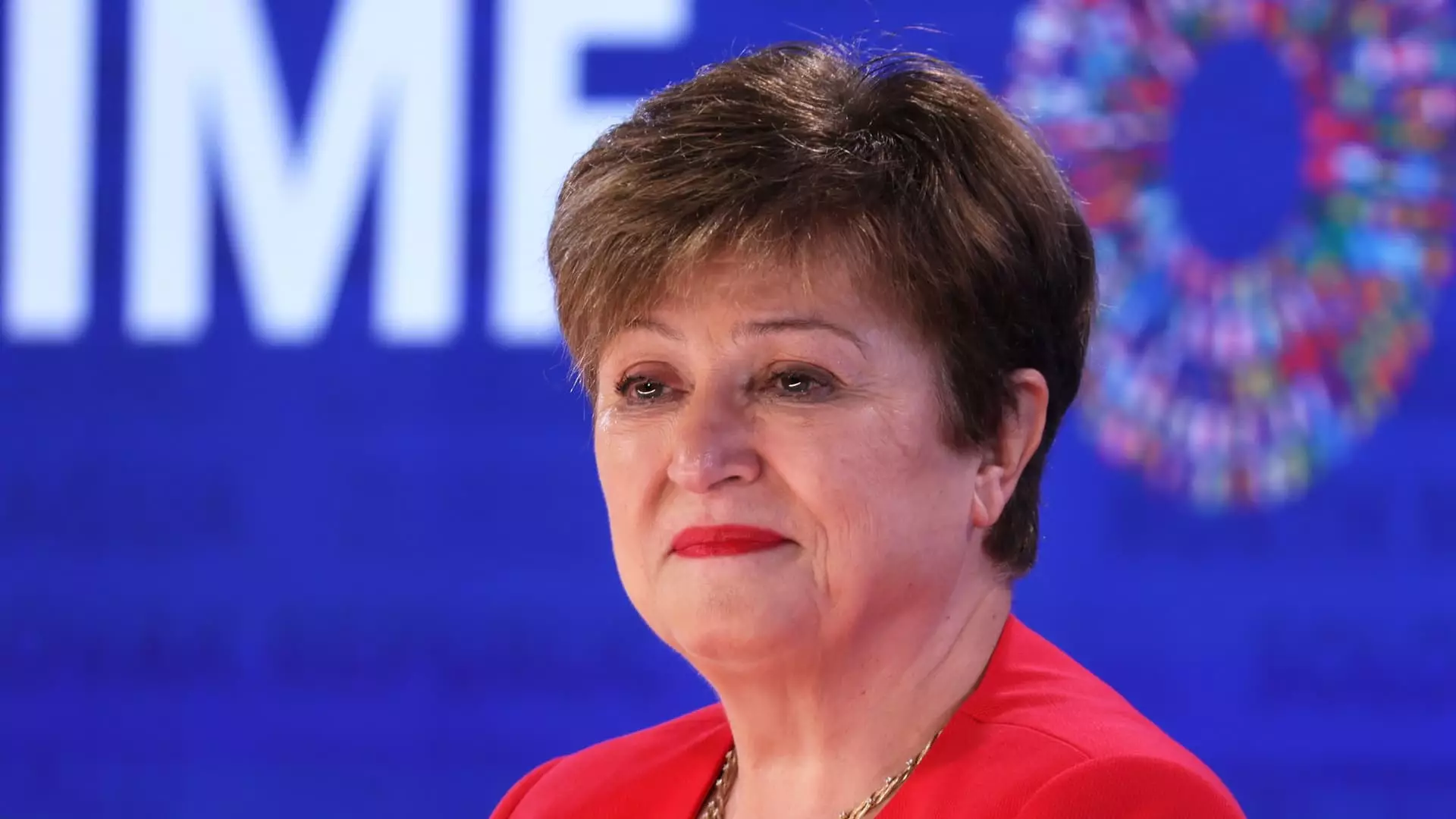The global economy stands at a precarious crossroads as significant challenges loom over its recovery. Recently, Kristalina Georgieva, the Managing Director of the International Monetary Fund (IMF), voiced her concerns regarding the interplay of high debt levels and low growth rates, highlighting them as the primary obstacles to economic stability. Her observations serve as a stark reminder that despite advancements made during the economic recovery, caution remains paramount. Governments, she warns, have grown overly reliant on debt as a means of financing, while experiencing “anemic growth,” which complicates the already arduous task of managing these financial obligations.
While some sectors, particularly in developed economies, display signs of recovery, Georgieva emphasizes that these gains are not uniformly experienced across the globe. Certain regions continue to grapple with stagnant growth, which exacerbates the burden of accumulated debt. This presents a dual challenge: the need for policymakers to foster sustainable economic growth while simultaneously addressing the realities of existing debt burdens. The urgency of this situation cannot be understated, as Georgieva states firmly, “It’s not yet time to celebrate.” It becomes clear that the path forward requires strategic reforms aimed at stimulating growth without exacerbating the debt crisis.
Inflation continues to haunt many countries, as Georgieva pointed out in her remarks. While she commended major central banks for their efforts to tame rising prices, the benefits have not been equally experienced worldwide. Citizens in various nations remain frustrated as their purchasing power diminishes, spurring social and political unrest. The sentiment of discontent is palpable, with consumers feeling the weight of inflation eroding their standard of living. Georgieva aptly notes, “The impact of higher prices remains, and it is making many people in many countries feel worse off and angry.”
As finance ministers and central bank governors prepare for their annual meetings, it is imperative that solutions to abate inflation take precedence. The discussions around economic recovery should pivot toward implementing measures that not only stabilize prices but also regain citizens’ trust in fiscal and monetary systems. Economic policymakers must coordinate their efforts to ensure that the recovery translates into tangible benefits for the populace.
As Georgieva adeptly points out, the landscape of international trade is drastically shifting. The traditional role of trade as a catalyst for growth is being undermined by a slew of protectionist policies. The stance taken by the United States and the European Union against China is emblematic of this new paradigm, signaling a retreat from globalization that many economies have come to depend upon. The project of globalization has not served everyone equally, prompting calls for protectionist measures.
However, Georgieva cautions against the long-term implications of these policies. Retaliatory trade measures could lead to extensive economic repercussions not just for targeted nations, but for the originating countries as well. The imposition of tariffs often harms domestic businesses and consumers, revealing the intricate web of global economic interdependence that protectionist measures threaten to unravel. Policymakers are urged to weigh the costs and benefits of these decisions critically, understanding that the repercussions of isolationism can be detrimental across the board.
Geopolitical Tensions: A Growing Concern
The specter of geopolitical strife looms large over the global economic landscape. Georgieva expressed grave concerns about the expanding conflicts in the Middle East, asserting that such volatility poses significant risks to regional economies and global energy markets. The intertwined fate of economies and international relations necessitates that leaders take proactive measures to mitigate these risks and safeguard financial stability.
The observations made by Kristalina Georgieva offer vital insights into the multifaceted issues facing the global economy today. While the environment may be fraught with challenges, it also presents an opportunity for policymakers to re-evaluate their strategies and work cohesively towards an inclusive recovery. The lessons drawn from the current economic climate underscore the necessity for vigilance, innovation, and collaboration in navigating the complex web of debt, inflation, trade, and geopolitical dynamics. Only through concerted efforts can the international community hope to build a resilient economic future.


Leave a Reply